
Speech therapy helps children who have a problem talking or expressing their thoughts. Speech therapy for children is recommended if your child is falling behind at some point at speech and language skills. Each child meets growth, movement, and speech milestones at different paces. By the age of two or three, they start speaking in sentences and some can keep up an endearing chatter. Some children have speech disorders or speech impairments which develop during their childhood. Speech therapy treatment significantly improves their language and communication skills.
Realizing that your child has a problem communicating may cause you worry but today, speech therapy exercises specifically cater to your child’s special and individual needs and portray a credible success rate. There are chances of children having physical or neurodevelopmental reasons which affect their capacity to talk and understand words. Speech therapy for children addresses such disorders and supports overall communication and language skills to combat everyday life.
In This Article
- What is Speech Therapy For Children?
- What Are The Milestones of Speech Development in Children?
- Common Speech And Language Disorders in Kids
- When do You Need a Speech Therapist For Your Child?
- Speech Therapy Exercises For Your Child
- Speech Therapy Activities at Home For Children
- FAQ’s
What is Speech Therapy For Children?
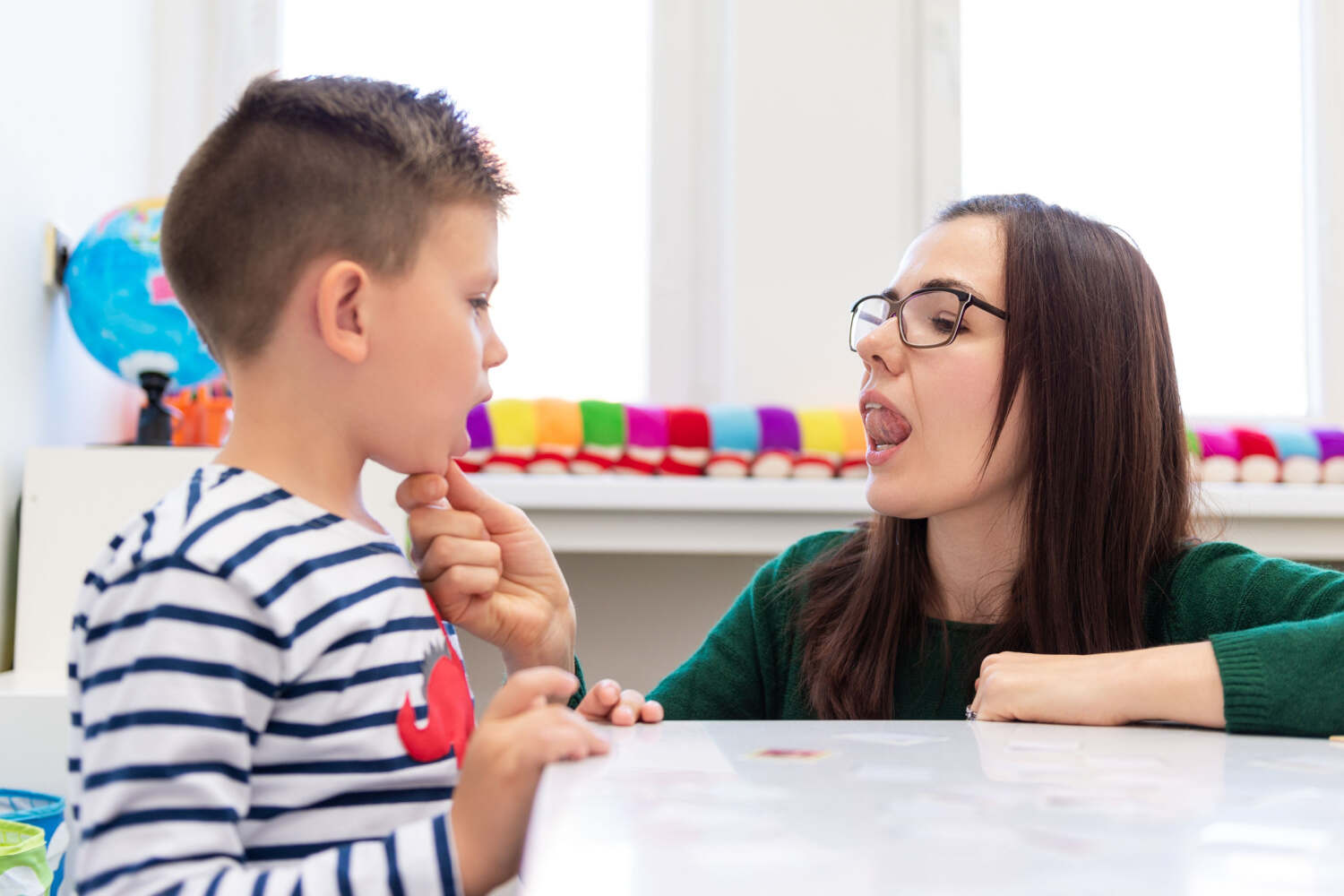
You must have wondered about what speech therapy for children is all about. Speech therapy is a treatment of speech disorder and communicating disability. It encompasses dealing with language and communication problems in children.
Speech-language pathologists or therapists carry out speech therapy for those who need it. The therapists work toward assessing, diagnosing speech, language, and cognitive communication disorders. Their therapy involves prevention of such disorders and swallowing disorders in children.
If your child has language or communication disorders, they might need speech therapy. The therapist gauges the strength and requirements of your child and sets the therapy plan individually. They identify the basic skills that lead up to the desired goal. The therapy is like taking the stairs one at a time till the goal is reached. Your child can master the small skills or goals first before having a go at the bigger high-level goals.
What Are The Milestones of Speech Development in Children?
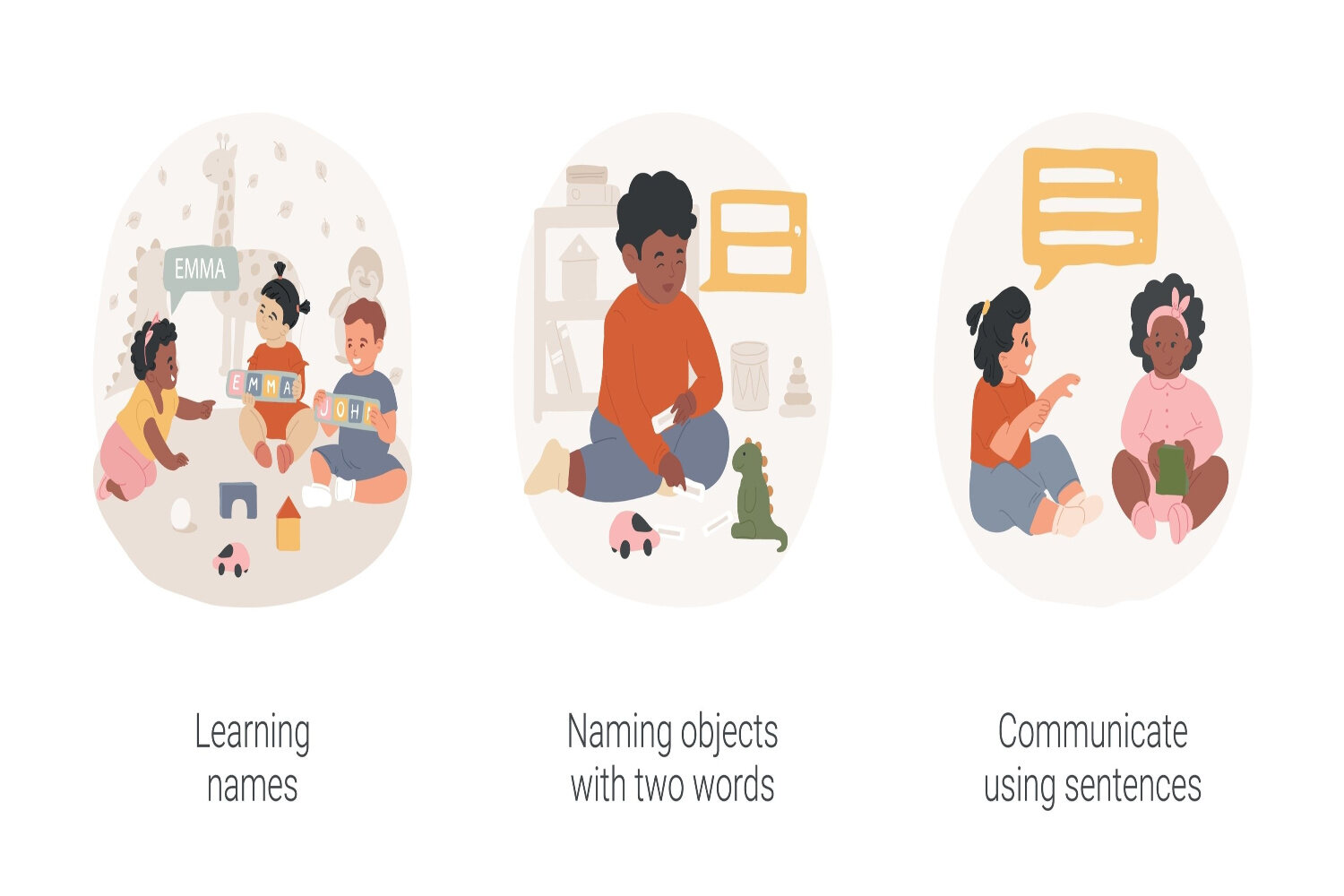
An infant learns that a cry will fetch food, a caress, and attention. They can understand environmental sounds. They know the voice of their mother or caretaker. As babies grow, they form a language of their own and by six months, most of them recognize basic sounds of speech.
Babies follow a natural timetable in learning communication skills like-
- Birth to three months- reacts to sound and communicates with coos and cries
- Four to six months- babbles and gurgles and notices toys which make sounds
- Seven months to one year- Imitates some speech sounds and uses gestures
- One to two years- Able to follow simple commands and acquire new words
- Two to three years- Speaks in a way their family can understand them
- Three to four years- Can use sentences with many words and speak easily
- Four to five years- They communicate easily with adults and other children and say most of the words correctly
These milestones help the doctor determine if a child is on track or requires help. A delay can be either due to loss of hearing or because of a speech or language disorder.
Common Speech And Language Disorders in Kids
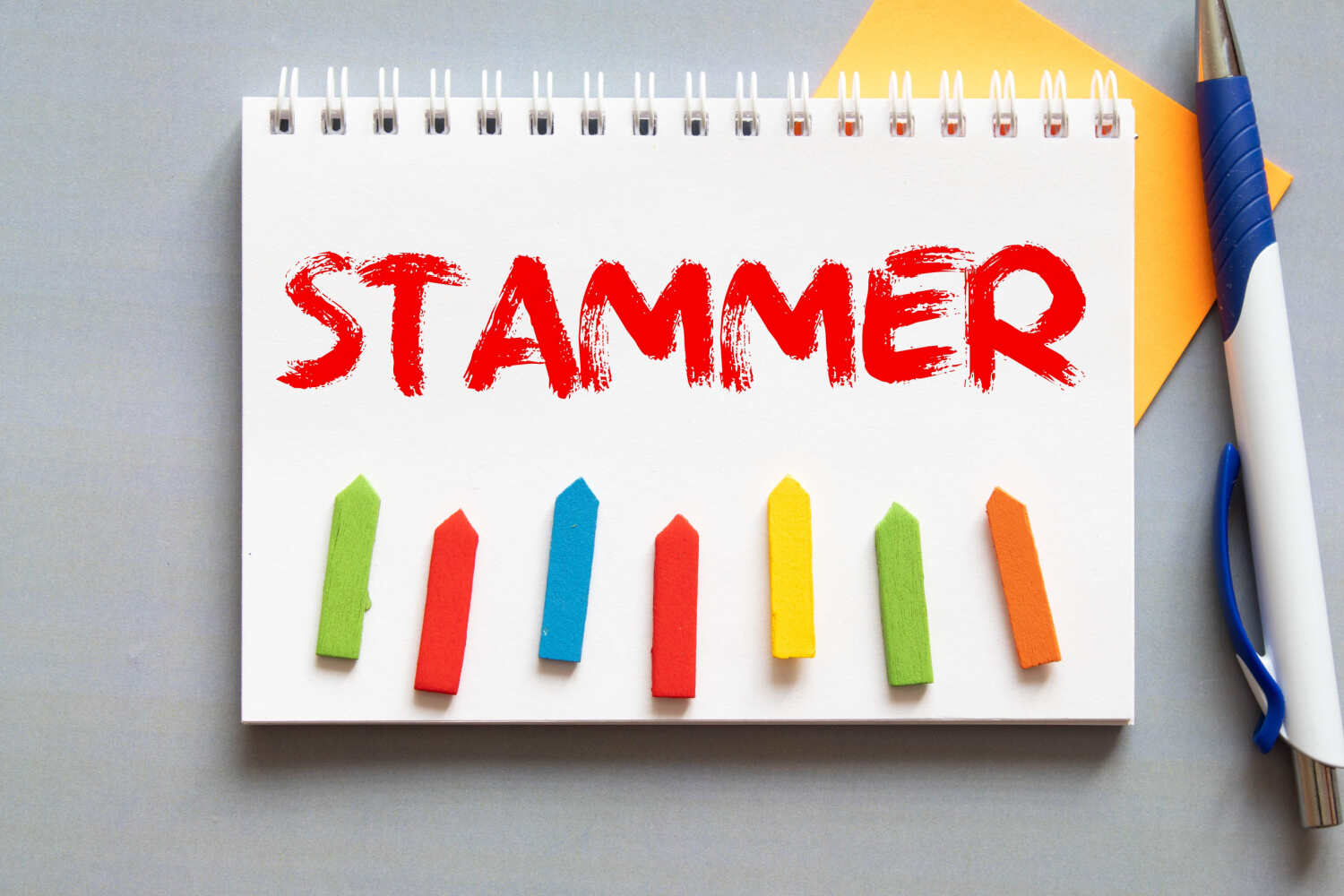
A condition where a child encounters a problem forming speech sounds while trying to communicate with others. This creates a situation where it is difficult to understand their speech. Common disorders of speech are-
- Voice disorder
- Disfluency
- Phonological disorder
- Articulation disorder
Speech disorder also refers to articulation disorder, vocal disorder, and communication disorder. Speech disorder includes- stuttering, stammering, cluttering, and childhood onset fluency disorder.
Language Disorders-
There is a significant difference between speech and language disorders in children. Those having difficulty with expressing or receiving messages or understanding the meaning of messages are referred to as language disorders.
Here we can look at the two-way language disorder-
Expressive language- Getting the message or meaning across to others.
Receptive language- Ability to understand the message coming from others.
When do You Need a Speech Therapist For Your Child?
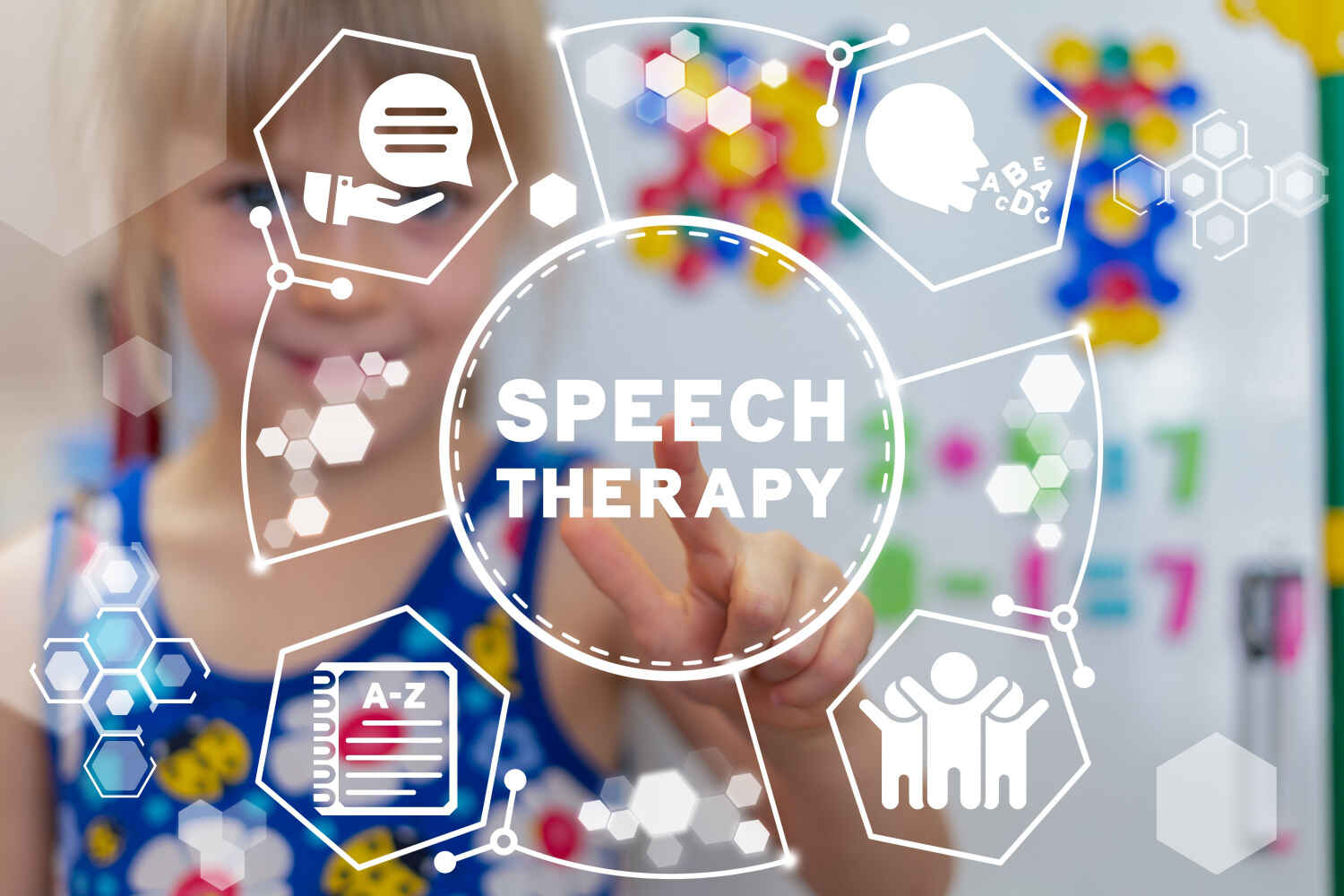
Developments in your child become manifold when they are three years old. It is a period where their brain develops quickly, and different kinds of growth happen almost at once. The same goes for language skills. The crying and cooing moves on to broken sentences and simple conversations. If your child has a problem with communication, then early intervention of a therapist is the best approach to dealing with it. Three years is the best developmental stage of children.
Speech therapy benefits a child having been born with a diagnosis and this extra support may be an added help, and a child may require aid in certain speech and language level attainment. Sometimes there is a situation where a child may have experienced a traumatic accident or sickness affecting their communication skills. Parents face delay in the following areas during the developmental stages of their child, such as-
- Voice
- Speech
- Language
- Feeding and swallowing
Contact a medical professional if your child is showing some signs of a speech disorder. You may realize your child is in a high-risk group and their speech is not achieving development in comparison with normal milestones.
Speech Therapy Exercises For Your Child
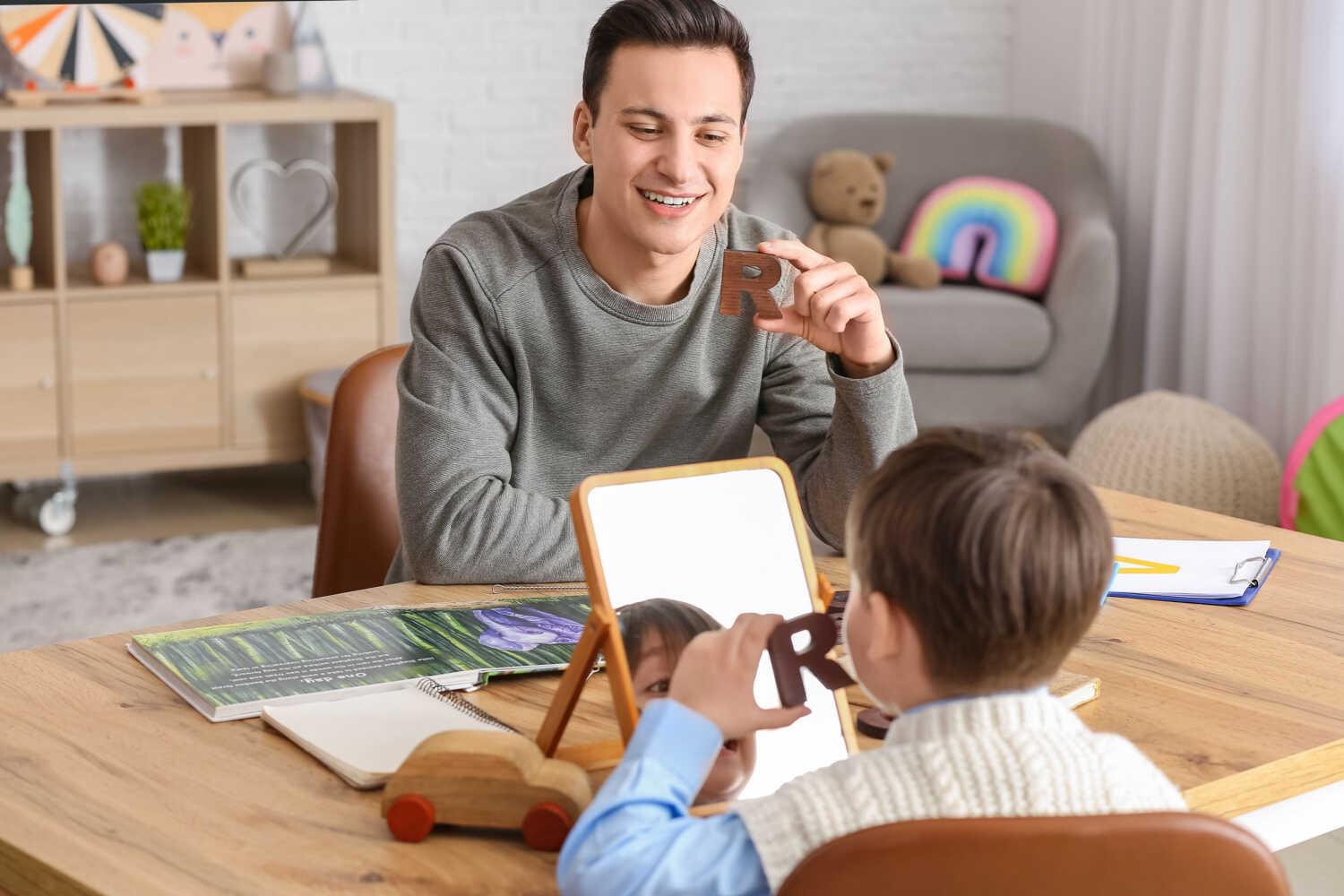
Good news is that children can outgrow mild forms of speech disorder. The severity of the disorder and cause sets the type of treatment in motion. A therapist teaches your child how to use their tongue to initiate or create certain sound and sound patterns.
Speech Therapy Exercises-
- Mirror- Children may not know the way to move their mouth and form words correctly. Use a mirror since it helps children watch as they move their mouth to say a word.
- Flashcards- Use flashcards with pictures and let your child check the pictures to understand the word.
- Going on Walks- Make time to go on a walk with your child. For every correct word your child can take a step ahead. Spend time in parks and try this game there.
- Playing Catch- Throw a ball back and forth to play catch with your child and let them practice words.
Besides games, you need to make your child exercise oral muscles. Implement Oral Motor exercises so your child can strengthen the muscles inside the mouth. Exercises include lip movements, tongue movements, and cheek movements. Exercises and activities for speech development differ age-wise for your child.
Speech Therapy Activities at Home For Children
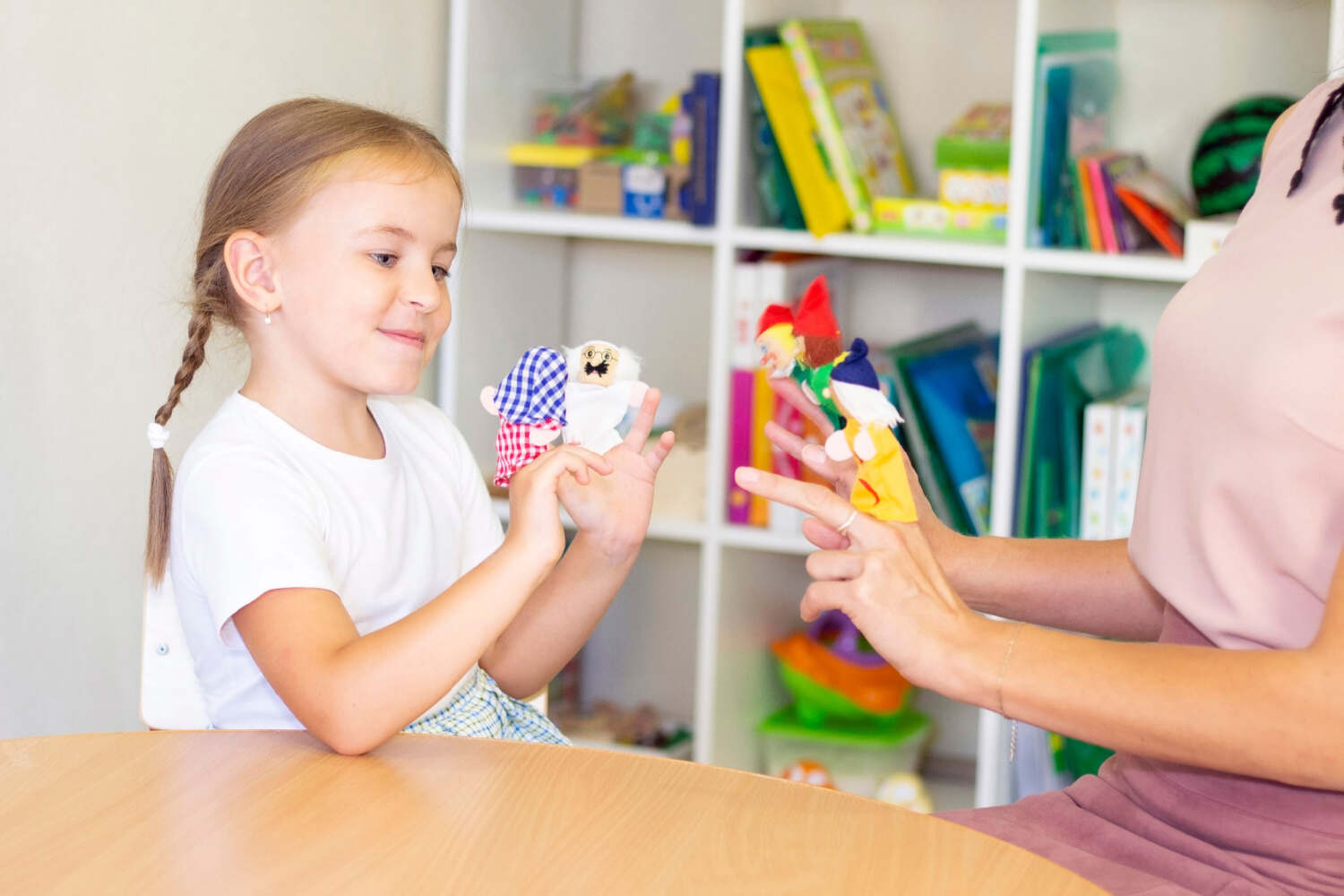
Every child speaks at his own pace, some take more time than others. Help your child learn to talk with the aid of speech therapy activities at home, like-
- Easy and simple sounds- Children listen and imitate what you say and do, so try to use simple sounds like say” ma, da, aa, ooh or da”
- Make Eye Contact- When you talk face to face with your child and make eye contact, they can grasp what you are saying
- Repeat Words And Speak Slowly- Speak in friendly tones and repeat words gently if your child repeats incorrectly
- Play Time- An effective way of communicating with your child is to play with them. Build confidence and let your child tell you what to do. It is a fun way to build motor skills
- Keep Talking- Make speaking a part of all your activities with your child. Be it bathing, changing, or feeding your child. Use simple language and explain when you are going out or planning something to do with your child
- Gestures- Appropriate hand gestures along with words help your child link a word with the meaning
- Rhymes and songs- Try a hand at singing songs and rhymes since they encourage speech
- Toys- The best method is to use some toys to play and help with speech development
It is common for a child to experience a problem of disfluency and normally it goes away before long. Speech therapy is recommended for children who have the inability to communicate with others due to physical or physiological problems. A therapist focuses not only on speech deficiency but also on your child’s competency to experience an enriched life style. Speech therapy trains your child to cope with the surroundings and build communication skills.
FAQ’s
1. What Age Should a Child go to Speech Therapy?
The correct age to initiate speech therapy depends on your child and the speech and language milestone your child might be attaining or missing. If you feel your child requires speech therapy at the earliest, then go ahead with the process. Early intervention impacts greatly on your child’s skills and abilities.
2. How Can I Help my Child During Therapy?
Team up with your speech therapist and work on the goals at home. Attending sessions to learn all the tips and tools during your child’s therapy process helps you work effectively with your child, which makes a big difference in your child’s progress.
3. How Long Will a Child Need Speech Therapy?
The duration of therapy differs for each child since it depends on the severity of the child’s problem. The improvement at sessions and also on the home front contribute to the duration of therapy.
